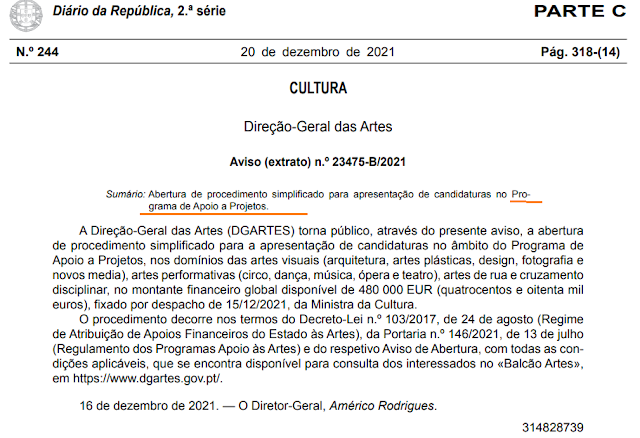sexta-feira, 31 de dezembro de 2021
quinta-feira, 30 de dezembro de 2021
quarta-feira, 29 de dezembro de 2021
terça-feira, 28 de dezembro de 2021
domingo, 26 de dezembro de 2021
«Media Capture: How Money, Digital Platforms, and Governments Control the News»
«Who controls the media today? There are many media systems across the globe that claim to be free yet whose independence has been eroded. As demagogues rise, independent voices have been squeezed out. Corporate-owned media companies that act in the service of power increasingly exercise soft censorship. Tech giants such as Facebook and Google have dramatically changed how people access information, with consequences that are only beginning to be felt.
This book features pathbreaking analysis from journalists and academics of the changing nature and peril of media capture—how formerly independent institutions fall under the sway of governments, plutocrats, and corporations. Contributors including Emily Bell, Felix Salmon, Joshua Marshall, Joel Simon, and Nikki Usher analyze diverse cases of media capture worldwide—from the United Kingdom to Turkey to India and beyond—many drawn from firsthand experience. They examine the role played by new media companies and funders, showing how the confluence of the growth of big tech and falling revenues for legacy media has led to new forms of control. Contributions also shed light on how the rise of right-wing populists has catalyzed the crisis of global media. They also chart a way forward, exploring the growing need for a policy response and sustainable models for public-interest investigative journalism. Providing valuable insight into today’s urgent threats to media independence, Media Capture is essential reading for anyone concerned with defending press freedom in the digital age». Saiba mais.
«SERVIÇO PÚBLICO» | cada um tem o seu ?
Sinopse
Sinopse
«Mariana Mazzucato, autora multipremiada e economista influente no panorama internacional, faz uma crítica implacável e muito necessária ao capitalismo atual, na qual defende que, para solucionar as crises maciças que nos ameaçam, precisamos de ser inovadores, de fazer uso de um pensamento colaborativo, com espírito de missão, ao mesmo tempo que é necessário redefinirmos a relação entre os sectores público e privado, para que não se resuma à partilha dos riscos, mas seja também a partilha dos lucros.
«Em Economia de Missão encontramos a visão, a ambição e a imaginação que tanta falta fazem nos governos atuais. Todos os que são a favor de um futuro melhor – de uma prosperidade que seja amplamente partilhada, de serviços públicos de qualidade acessíveis a todos e de uma solução para a crise climática – devem ler este livro.»
Tom Kibasi, The Guardian
«Mariana Mazzucato defende que as sociedades devem rejeitar as ideologias estafadas e adotar a abordagem política que levou astronautas à Lua. Quando estabelecem missões específicas e o poder do Estado é exercido de forma pragmática, as sociedades podem tornar-se mais prósperas e equitativas. Mazzucato é uma economista ítalo-americana de vocação heterodoxa, cuja obra há muito desafia o pensamento económico corrente sobre o papel dos mercados e do governo no nascimento da inovação. Escreveu um livro notável.» Economist».
sexta-feira, 24 de dezembro de 2021
quinta-feira, 23 de dezembro de 2021
quarta-feira, 22 de dezembro de 2021
VOLTEMOS AO «AMPLIFY /Make the future of Europe yours»
«Recommendations • Address the fatal combination of climate neglect and political inaction that endanger communities and their futures. Include arts and culture in combating the climate crisis. • Guarantee the conditions for a dignified life. Disrupt logics of exploitation, precarity and marginalisation. Implement a pedagogy of the commons which includes experimental and collaborative practices in local communities. Create institutional guarantees so that the intersection of culture, community building, and wellbeing is at the heart of public policies. • Reinforce community participation. EU institutions need to be updated, from being perceived as solely a funding opportunity to a framework that is meant to empower communities. Bottom-up and participatory processes are crucial for creating new management models of common goods. • Promote systemic change by creating synergies across different sectors, providing training, and pooling resources and knowledge for trans-sectoral cooperation. • Involve youth in long-term decision-making for the future of Europe. Reinforce youth councils by including young emerging artists. Develop opportunities that further involve them in EU governance processes. • Include arts education in school curricula and educational institutions as it is vital for the eradication of social inequalities, racism, and discrimination and developing critical thinking. • Redesign and rethink policies to fully support the development of cultural ecosystems that are diverse, communitarian and transversal. Cultural rights such as accessibility, participation, the right to creation, equal opportunities, fair working conditions, and decentralisation must inspire new legislative frameworks. These should secure real, active and direct participation and prioritise underrepresented communities. • Activate creative, cultural and social processes in marginalised communities by pushing institutions to work more in these contexts. Use existing knowledge and practices rooted in the territories and foster intercultural learning. • Decentralise EU funding opportunities by making them accessible and flexible to all. Make EU regional and municipal offices closer to people, especially in non-urban and peripheral territories, to help with project ideas, funding, and exchanges. Build capacity of the cultural sector on financial sustainability with additional training, professionalisation, and peer-learning».
terça-feira, 21 de dezembro de 2021
MAIS DOIS CONCURSOS DA DGARTES | mais duas «gavetas» que se abrem ... | QUAL É A ESTRATÉGIA GLOBAL? | NÃO SABEMOS ...|MAS NÃO SE DISTRAIA COM AS FESTAS E COM AS ELEIÇÕES E APROVEITE SE FOR CASO DISSO
***************************
... e lembrámo-nos disto:
e uma vez mais disto: «(...)Por que é que o SERVIÇO PÚBLICO CULTURA não há-de ser assumido com a mesma dignidade e o mesmo método que os outros serviços públicos?(...)» - veja aqui.
«¿Te perdiste el webinar de presentación del libro La innovación en la gestión de la cultura?»
«¿Te perdiste el webinar de presentación del libro La innovación en la gestión de la cultura? Puedes ver de nuevo el video del evento en nuestro canal de youtube y recuperar el contenido de las diferentes mesas redondas».
























